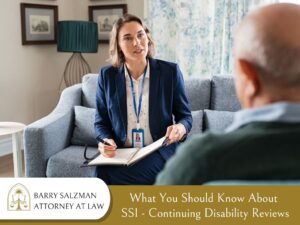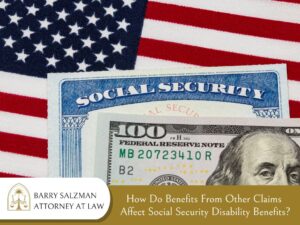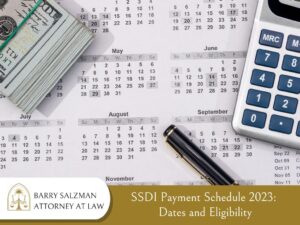Can I Work Part-Time After Being Declared Disabled by SSA?
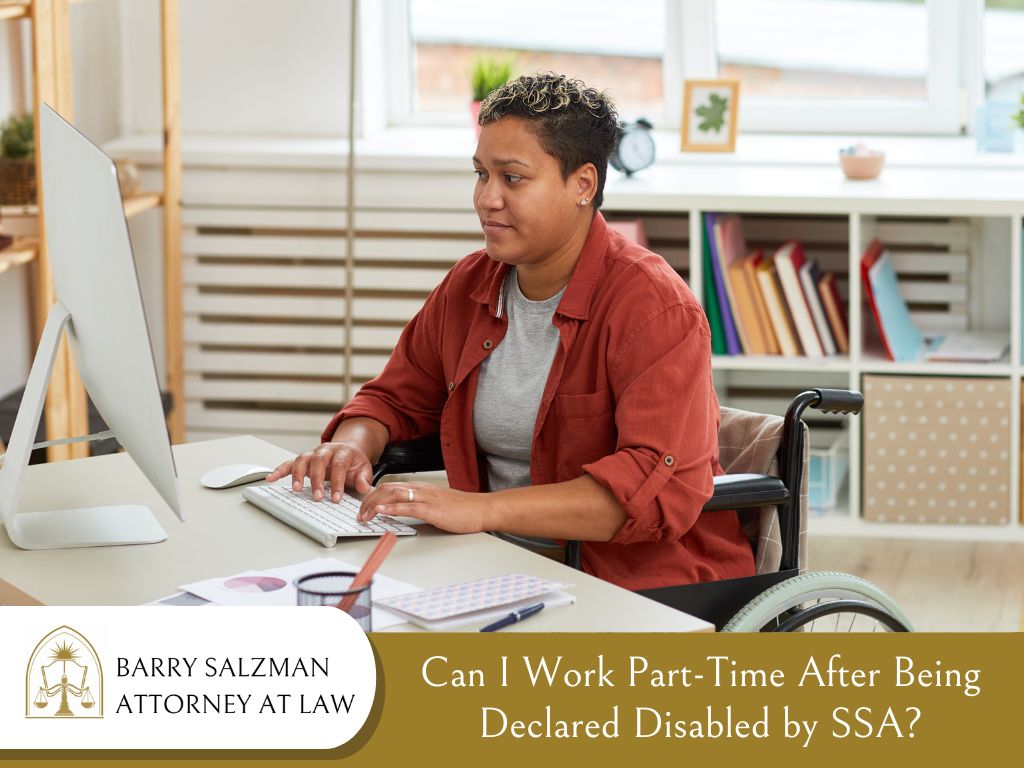
Information about Working Part-time after You’ve Been Found Disabled by SSA
This memorandum is designed to answer questions asked by people receiving Social Security disability or SSI benefits who are considering working part-time.
Can I Work Part-Time Without Losing My Disability Benefits?
Yes, it is possible to work and receive disability benefits. However, the answer to this question depends on your earnings and the benefits you receive. If you are receiving Supplemental Security Income (SSI) and decide to work, your SSI benefits will be reduced by one dollar for every two dollars you earn after the first $65 (or $85 if you have no other income). This means that if you earn enough from working part-time, your SSI benefits may stop. However, if your benefits have stopped due to your earnings for a full year, you will need to reapply to receive benefits again.
On the other hand, if you are receiving Social Security disability benefits and your earnings are below the “substantial gainful activity” (SGA) amount defined by the Social Security Administration (SSA), your benefits will not be affected by your earnings. This means you will continue to receive your full Social Security disability benefit while working part-time. Additionally, during the nine-month trial work period, it is possible to earn more than the “substantial gainful activity” amount and still receive your full benefits.
What Is the Maximum Monthly Income I Can Earn While Still Eligible for Social Security Disability Benefits?
The maximum monthly income that you can earn while still retaining your eligibility for Social Security Disability benefits depends on whether the Social Security Administration (SSA) considers your work to be SGA. As of 2023, the SSA defines SGA for a non-blind individual as earning more than $1470 per month. For individuals who are blind, the amount increases to $2460 per month. These limits are subject to annual adjustments.
Subsequently, if you’re a non-blind individual, and your monthly earnings exceed $1470 (after the nine-month trial work period), SSA may consider that you’re engaging in SGA, and your disability benefits might cease. However, if your income does not exceed this limit, you can continue working part-time while receiving your full disability benefits. This income limit ensures that those who are unable to work full-time due to their disability continue to have a source of financial support, while those who can manage part-time employment are still encouraged to do so.
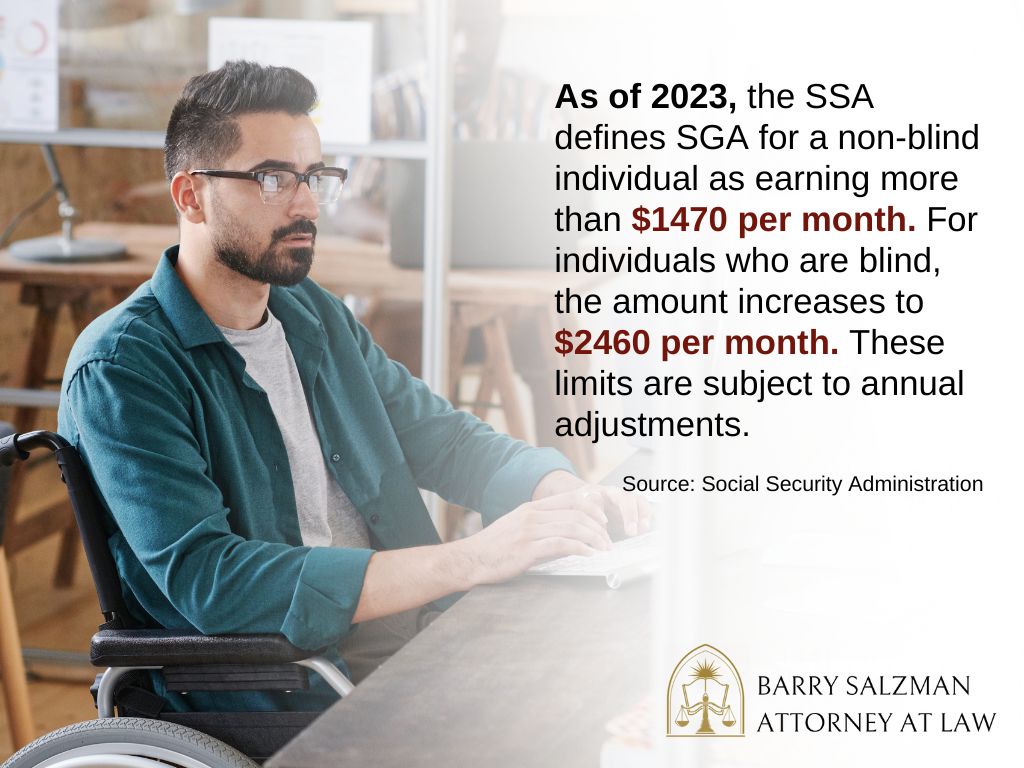
For blind individuals, the higher SGA limit of $2460 per month acknowledges the additional challenges and provides greater financial flexibility. Note that these amounts only consider income from work. Other sources of income, such as interest from savings, investments, and benefits from other government programs, are not included in these limits. It’s crucial to keep the SSA informed about your work activity to ensure you receive the correct benefits and avoid potential overpayments and penalties.
If you plan to work part-time while maintaining your benefits, ensuring your income remains comfortably below the substantial gainful activity threshold is crucial. By keeping your earnings below the “trial work period services” amount, currently set at $1,050 per month in 2023, you can preserve your trial work period months for future use if you decide to pursue full-time employment again. It’s important to note that these recommendations specifically apply to individuals receiving Social Security disability benefits. If you’re receiving SSI benefits, the trial work period rules do not apply, and the substantial gainful activity amount rules don’t apply to those already receiving SSI benefits.
Why Keep Income Below the “Trial Work Period” Amount?
Maintaining income below the trial work period amount emerges as a significant strategy if you are considering working part-time while receiving disability benefits. This approach allows you to reserve your trial work period for a time when you may wish to attempt full-time employment. Doing so allows you to test your capacity for full-time work without jeopardizing your benefits.
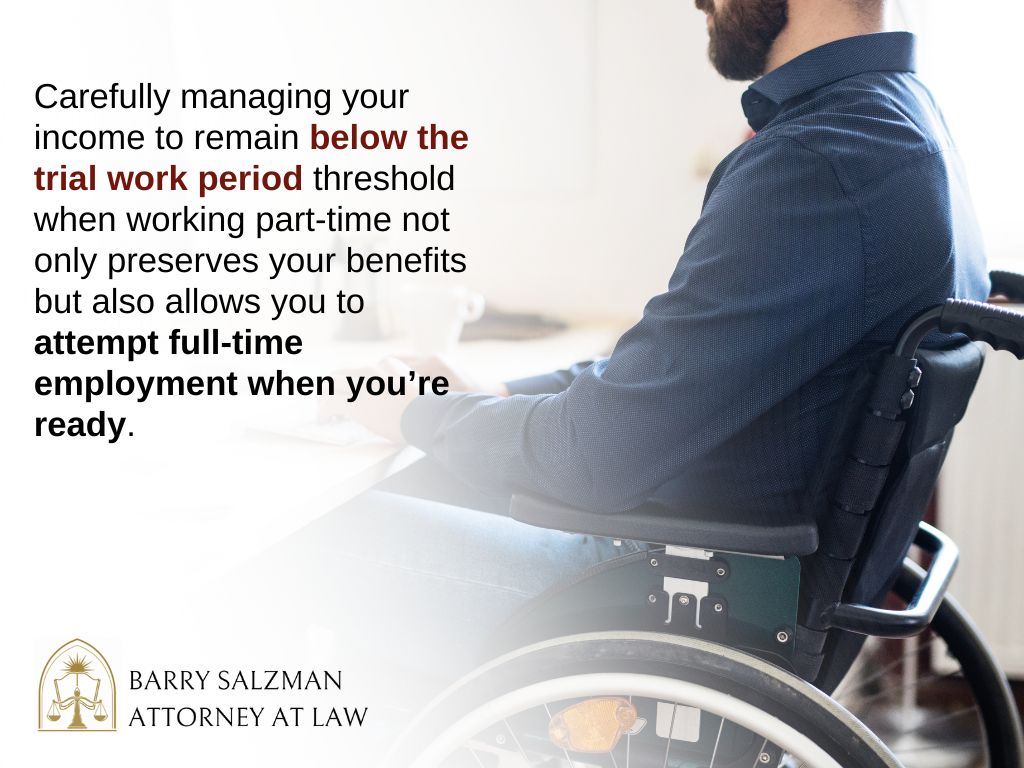
The trial work period, lasting nine months, can be seen as a safety net. It allows you to attempt full-time work, earn beyond the SGA limit, and still retain your full disability benefits. This flexibility provides a buffer for assessing your ability to sustain full-time employment without the risk of prematurely losing your benefits. If you decide full-time work is not feasible at the end of this period, your benefits will continue uninterrupted, provided you do not exceed the SGA limit.
Even intermittently, working part-time and exceeding the trial work period amount can unwittingly consume your trial work period. This can lead to a situation where, having exhausted the trial work period on part-time work, an attempt to transition to full-time work might result in an abrupt cessation of benefits. This constraint can limit the freedom to explore full-time employment opportunities without risking financial stability.
Moreover, reinstating benefits may become more challenging if you exhaust your trial work period and then engage in substantial gainful activity beyond three years. Reestablishing your benefits may not be a straightforward process if you decide to stop working at this stage. This is one reason why preserving your trial work period until you’re ready to return to full-time work is advisable.
Therefore, carefully managing your income to remain below the trial work period threshold when working part-time can help safeguard your trial work period. This strategy not only preserves your benefits but also allows you to attempt full-time employment when you’re ready, with the reassurance of having a safety net in place. It’s always prudent to consult with a legal or financial expert in Social Security matters to ensure that you’re making informed decisions about your work and benefits.
Should I Consider Gross Income or Take-Home Pay to Stay Below the Trial Work Period Income Threshold?
When seeking to stay below the monthly income threshold during the trial work period, it’s your gross income, not your take-home pay, that is considered by the SSA. Gross income refers to your total earnings before deductions such as taxes, social security, pension contributions, or even your living expenses. In contrast, take-home pay, or net income, refers to the amount you receive after deductions from your gross income.
This is critical information to bear in mind when planning your part-time work hours to ensure your earnings remain within the prescribed limits, thus safeguarding your disability benefits. Always keep accurate records of your earnings and promptly report them to the SSA to avoid any complications or misunderstandings.
What Are the Guidelines for Working Below the SGA Level if I Need More Income Than the Trial Work Period Allows?
In certain situations, you might need more income than the Trial Work Period allows without crossing the SGA level. In such cases, the Social Security Administration provides an allowance for Impairment-Related Work Expenses (IRWEs). IRWEs are costs you incur for certain items and services you need to work despite your impairment.
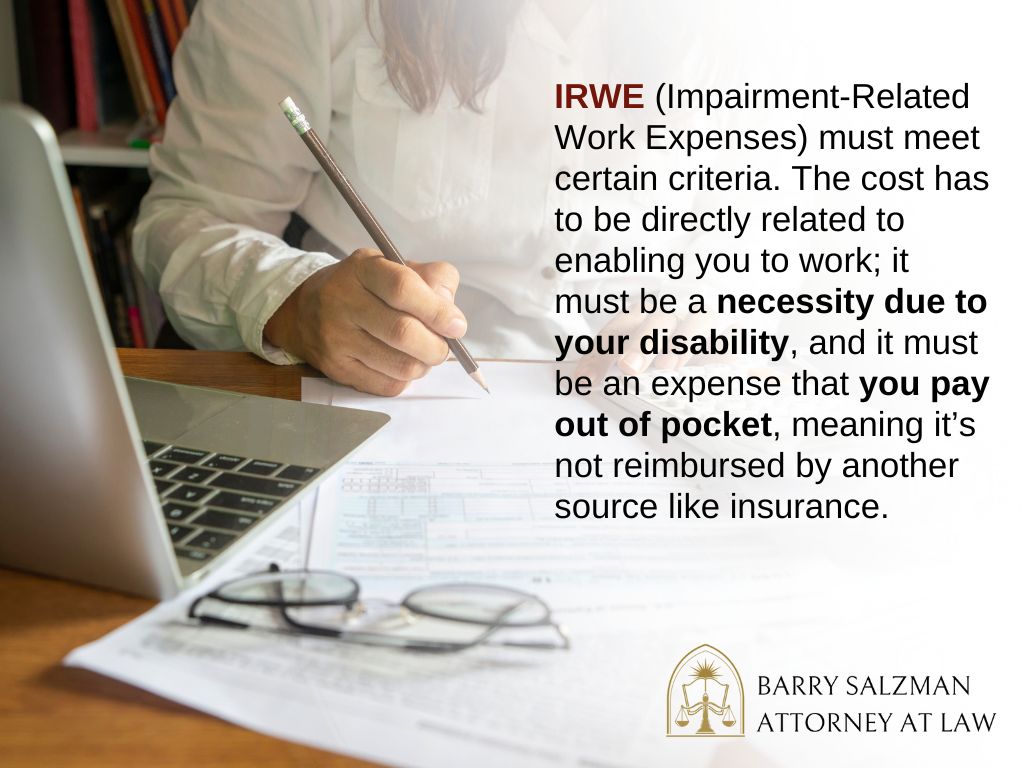
For instance, if you require special equipment, need to pay for medication that enables you to work, or if you have to hire a service for transportation to your workplace due to your disability, these costs can be considered IRWEs. SSA deducts these expenses when determining your countable income, which means these expenses won’t count towards the SGA limit. Therefore, IRWEs can effectively increase the amount you’re able to earn without losing your benefits.
However, to qualify as an IRWE, the expenses must meet certain criteria. The cost has to be directly related to enabling you to work; it must be a necessity due to your disability, and it must be an expense that you pay out of pocket, meaning it’s not reimbursed by another source like insurance. Additionally, the cost must be reasonable, meaning it represents a standard charge for the item or service in your community.
Can I Work Part-Time at My Own Business?
While receiving disability benefits, working part-time in your own business is possible. However, it’s important to note that the Social Security Administration (SSA) evaluates self-employment differently from wage employment. They consider not only your income but also the time you spend working and the value of your work to your business.
Although the SSA allows for some flexibility, there is a chance that they may determine individuals engaged in part-time self-employment with initial financial losses to be involved in substantial gainful activity. While this is not common, it’s important to be aware that benefits can be lost based on this criterion alone. Additionally, if you work more than 80 hours per month, even while experiencing financial losses, the SSA will consider it as a trial work period service, thus depleting your trial work period.
When Should I Report My Work Income to the SSA?
It’s crucial to report your work income to the SSA as soon as you start working, regardless of whether you’re receiving SSI or SSDI benefits. This ensures that the SSA has the most accurate information to calculate your benefits.
For SSI recipients, the SSA requires that you report your earnings no later than the 10th of the month following the month in which you received the income. For example, if you earned income in January, you should report this income to the SSA by February 10th. If the 10th falls on a weekend or a holiday, you should report the income on the next business day. Additionally, if you have changes in your work hours, wages, or job, you should report these changes to the SSA immediately.
For SSDI recipients, the SSA does not have a specific deadline for reporting income, but it’s still best to report your earnings promptly. SSA advises reporting changes immediately, including starting or stopping work, a change in duties, hours, or pay, the start of a new work year, or changes to any disability-related work expenses.
To report your earnings, you have several options: by phone, mail, or in person at your local Social Security office. If you receive SSI, you can also use the SSITWR system or the SSA’s mobile wage reporting application.
When contacting the SSA to notify them about starting work, make sure to inquire about the documentation requirements for reporting your income. It is important to clarify that you are receiving disability benefits, as different rules apply. Take note of the name and location of the SSA representative you speak with.
Afterward, it is recommended to send a follow-up letter to your local office. Include details about your employment commencement and reiterate the information previously provided regarding reporting income. Remember to keep a copy of the letter for your records.
Will SSA Conduct Medical Review During Trial Work Period?

During the course of your Trial Work Period, it’s crucial to be aware that the Social Security Administration (SSA) may opt to conduct a medical review. This involves an examination of your physical or mental condition to ascertain whether your disability still prevents you from engaging in substantial gainful activity. If, following the review, the SSA determines that your disability has medically improved and you’re able to work, your benefits may be ceased. However, it’s worth noting that this doesn’t occur frequently, and most beneficiaries don’t undergo a medical review during their Trial Work Period.
A trial work period concludes once an individual has rendered services for a total of nine months within a rolling period of 60 months (as per 20 C.F.R. §404.1592(e)(2)). However, it is also possible for the trial work period to terminate earlier, as stated in 20 C.F.R. §404.1592(e)(3):
(3) The month in which new evidence, other than evidence relating to any work you did during the trial work period, shows that you are not disabled, even though you have not worked a full 9 months. We may find that your disability has ended at any time during the trial work period if the medical or other evidence shows that you are no longer disabled. See §404.1594 for information on how we decide whether your disability continues or ends.
Please note that in order for the trial work period to conclude and benefits to be terminated prior to exhausting the full nine months of trial work, the SSA requires new evidence of improvement unrelated to the recipient’s work. This provision serves as a work incentive, ensuring that the work undertaken by the recipient is not held against them. The intention of the SSA is to provide support while promoting clarity and fairness in the assessment process.
In order for the SSA to uncover additional evidence of improvement, it is necessary to carry out a continuing disability review. Remarkably, a return to work serves as a catalyst for initiating a continuing disability review. As outlined in 20 C.F.R. §404.1590(b), the SSA will commence a continuing disability review under the following circumstances:
(5) Substantial earnings are reported to your wage record;
(6) You tell us that—. . .
(ii) You have returned to work;
(7) Your State Vocational Rehabilitation Agency tells us that—. . .
(ii) You are now working;
(8) Someone in a position to know of your physical or mental condition tells us any of the following, and it appears that the report could be substantially correct: . . .
(iii) You have returned to work;
Put simply, if the recipient reports their return to work, as required by 20 C.F.R. §404.1588(a)(2) and enforced with potential criminal penalties under 42 U.S.C. §408, or if someone else reports their return to work, the Social Security Administration (SSA) will conduct a continuing disability review. While the SSA offers the trial work period as an incentive for recipients to return to work, the possibility of a continuing disability review acts as a deterrent.
To enhance the incentive for return to work, an exception is established by 20 C.F.R. §404.1590(i) for recipients who have received disability benefits for at least 24 months. In such cases, the SSA will not initiate a medical continuing disability review solely based on a report of work activity. This is referred to as “protection from medical review based on work activity” in the Program Operations Manual System (POMS) DI 13010.012.
However, even though recipients who have received benefits for 24 months are protected from SSA initiating a continuing disability review solely due to work activity, they are still subject to regularly scheduled medical CDRs and medical CDRs initiated for other reasons according to 20 C.F.R. §404.1590(i)(3). POMS DI 13010.012A states:
“Even if a beneficiary qualifies for protection from medical review based on work activity, the beneficiary will still be subject to regularly scheduled medical CDRs and to any other medical CDRs that are initiated for a reason(s) other than the beneficiary’s work activity unless the individual is ‘using a ticket’ under the Ticket to Work program (See DI 55025.001). Work activity will still be investigated, with Trial Work Period months being documented and Substantial Gainful Activity determinations still being performed at the conclusion of the TWP.”
Consider Hiring a Disability Lawyer
Considering the intricate rules and potential consequences of mistakes, it may be prudent to contemplate engaging attorney Barry Salzman, a disability attorney. He can help you understand the rules and ensure that your efforts to return to work comply with the law. An experienced Social Security disability lawyer like Barry Salzman can also help you navigate SSA’s bureaucracy, get prompt answers from SSA, and provide advice on how best to protect your entitlement to monthly benefits.
Don’t navigate the complexities of the Social Security system alone. Instead, entrust your case to Attorney Barry Salzman, an experienced disability attorney with a proven track record of safeguarding individuals’ rights and securing their rightful benefits.
Take the first step towards securing your well-being by reaching out to Barry Salzman today and putting his expertise to work for you.
Schedule Your Consultation Today
Navigating the bureaucracy of any disability program is complex and frustrating and often ends in denial.
Don't do it alone! Have a dedicated, experienced advocate on your team.
Fill out the form below or give us a call at 727-321-4993.

